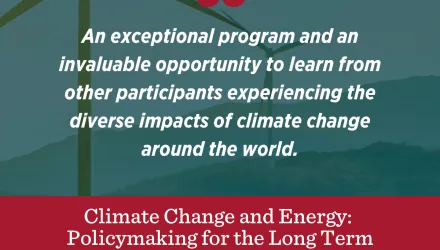Front and Center
"Any serious effort to address anthropogenic climate change will require giving the private sector a financial incentive to reduce emissions. Firms and consumers currently pay nothing to emit carbon dioxide (CO2) and other greenhouse gases. If we want to reduce the harmful effects of such gases on our environment, this free ride for pollution must come to an end.
The two most cost-effective approaches to change incentives and reduce emissions are: (1) ration CO2 emissions through a so-called "cap-and-trade" system; or (2) set a fee on CO2 emissions. Either approach would raise the cost of emitting CO2 and spur investments in more climate-friendly fuels and energy efficiency. These policies, however, are not interchangeable; each has its own advantages and drawbacks, and these merit careful consideration.
Because the emission fee strategy has received markedly less public attention so far than the cap-and-trade approach, this paper focuses on explaining emission fees — how they would work, how they differ from cap-and-trade, and the potential advantages and disadvantages of such a system for the environment and the economy...."
Aldy, Joseph. “Using Emission Fees to Curb Greenhouse Gases: A Primer.” Progressive Policy Institute, November 20, 2007
The full text of this publication is available via Progressive Policy Institute.





